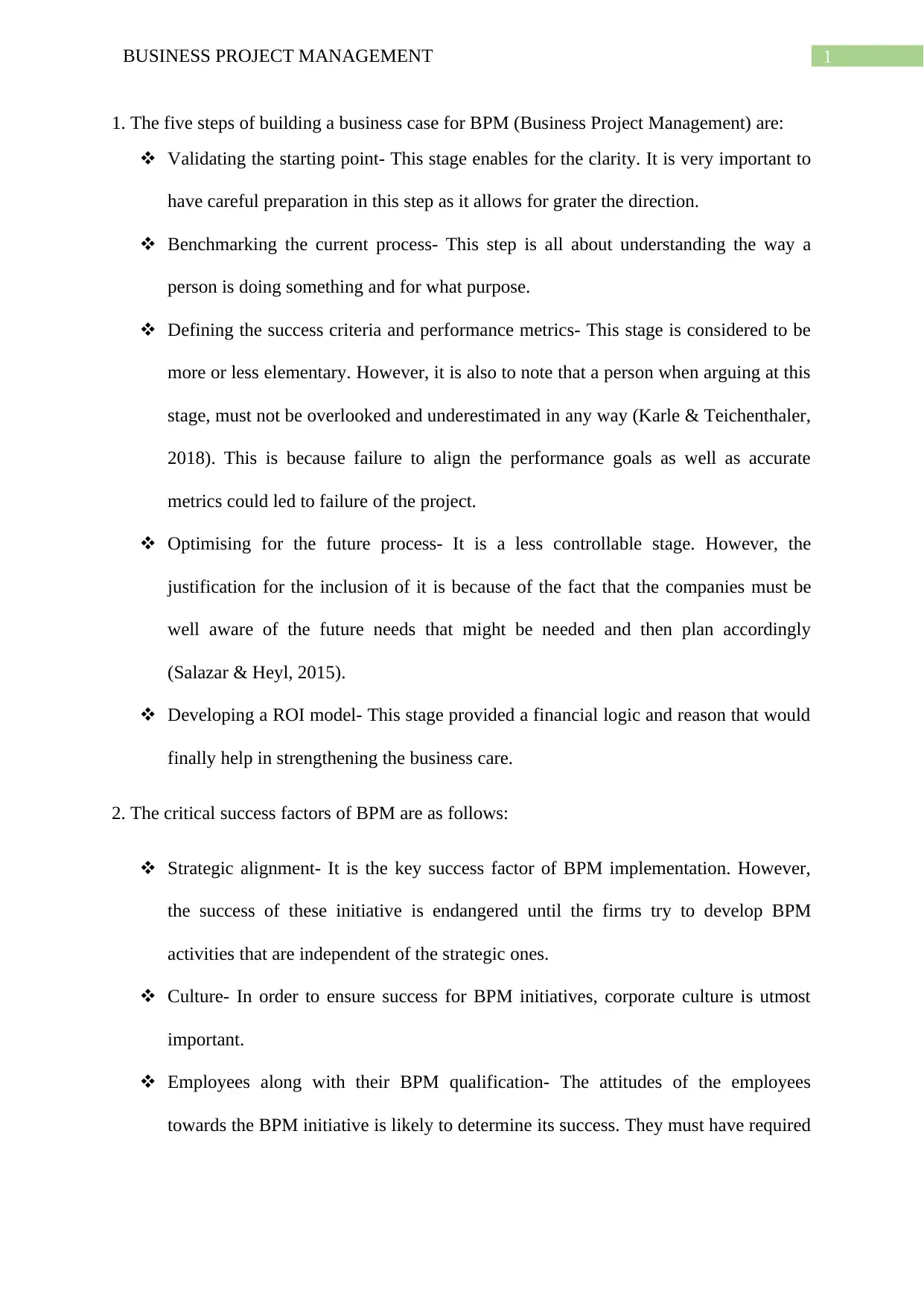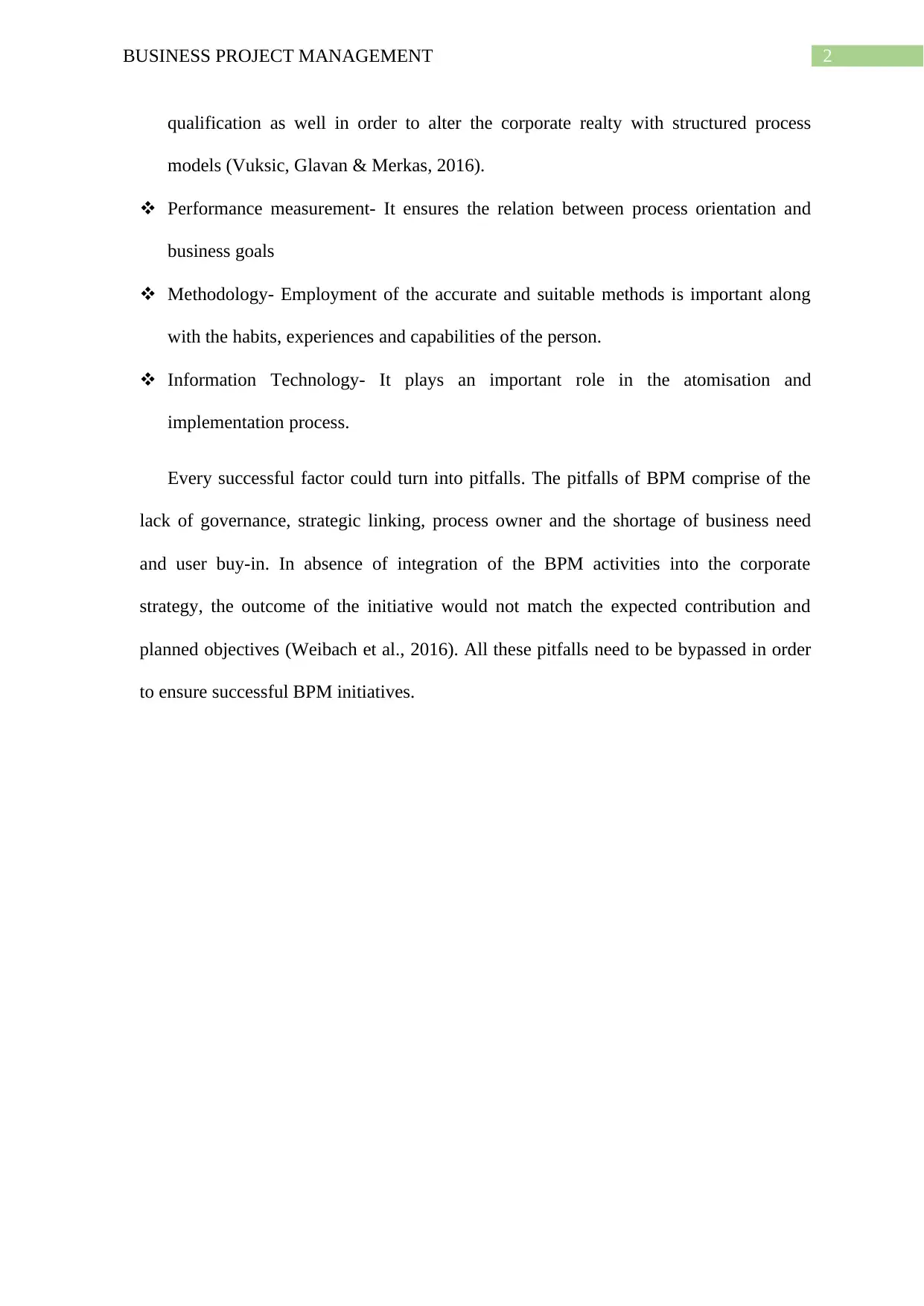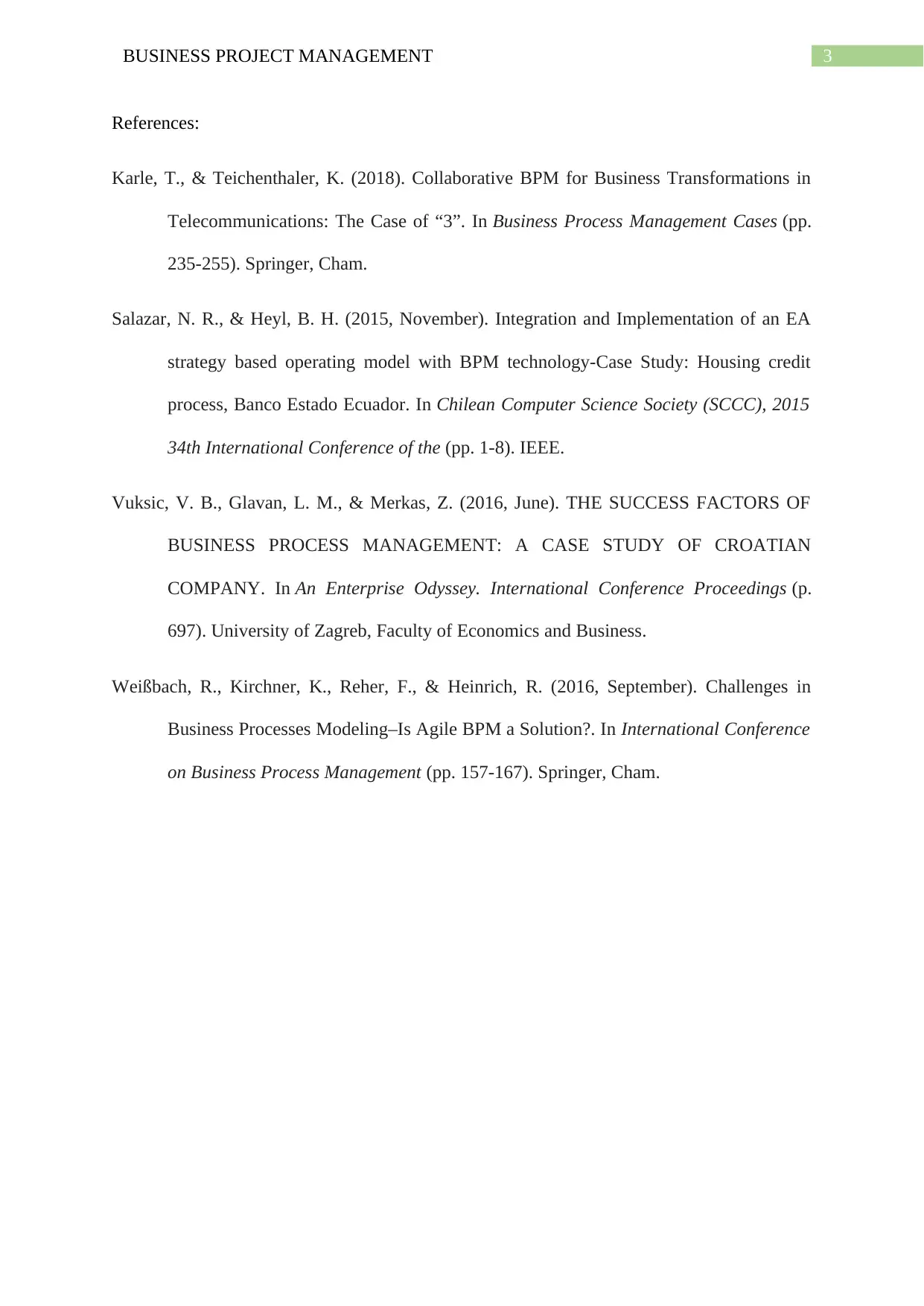Business Project Management: Building Cases, Factors, and Pitfalls
VerifiedAdded on 2023/06/10
|4
|726
|293
Report
AI Summary
This report delves into the core aspects of Business Project Management (BPM), outlining the five essential steps in building a robust business case, including validating the starting point, benchmarking current processes, defining success criteria, optimizing for the future, and developing a ROI model. It also identifies critical success factors such as strategic alignment, corporate culture, employee qualifications, performance measurement, suitable methodology, and information technology. The report further examines potential pitfalls, including lack of governance, strategic linking, and user buy-in. By analyzing these elements, the report provides a comprehensive overview of BPM implementation, aiming to guide organizations toward successful project outcomes and the achievement of planned objectives. References to academic sources are included to support the analysis.
1 out of 4










![[object Object]](/_next/static/media/star-bottom.7253800d.svg)